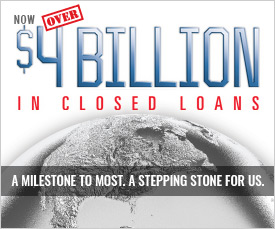
Borrowers should expect to fill out a lot of paperwork when applying for a loan, and for good reason. The in-depth inquiries and requests for documentation are an important part of the process. Questions about your income, assets, down payment and more provide a private investor with a good snapshot of financial history and what the borrower intends to do with the loan.
Just because those details aren’t required doesn’t necessarily mean that someone wants to disclose them, especially details that may jeopardize their chances of securing a loan. Anything from a lack of assets to a shady past partnership could sink the opportunity as soon as the paperwork is handed in. However, that doesn’t override the golden rule of the lender-borrower relationship: always tell the truth.
“Commercial mortgage brokers have to ensure they are aware of all the facts related to a property and the potential borrower,” according to Kevin Wolfer, president and CEO of Kennedy Funding. “Hard money lenders will look past many issues, as long as there is transparency.”
Some applicants, while few and far between, may be tempted to cover up a blemish in their financial history when applying for a traditional loan. Certain factors, such as past credit problems or partnership issues, could mean an instant rejection from a bank or other financing institutions. These same applicants may feel like they have to “stretch the truth” when applying to borrow from a hard money lender out of fear of rejection, even though alternative funding sources have more flexibility when it comes to less-than-perfect loan applications.
It’s not just the borrower’s personal details that shouldn’t be fudged for the sake of the application – it’s the scenario around the loan that needs total transparency as well. Just like a traditional lender, an alternative funding source needs to know what the money is for and the status of the project in order to ensure loan closure.
Consider a loan application requesting $10 million to construct a shopping plaza. Don’t say that the project has been approved by the local planning board if it’s still in the approval process. Don’t say the property is properly zoned for a shopping plaza when it’s actually zoned for professional offices. These just create unnecessary stumbling blocks and complication in a process reliant on clear and honest information.
Aside from any legal implications if the applicant gets caught, there are two major reasons why private lenders expect — and require — absolute honesty during the loan application process:
- A lie on your application is indicative of your character. Trust is a founding principle of any business relationship. Any fraudulent information on the loan application case aspersions on the future of the relationship — a private lender has every reason not to trust someone with millions if they cannot be honest on their application.
- Honesty ensures a private lender can secure funding for a loan. Hard money lenders have flexibility that traditional lenders do not. Subpar credit, partnerships gone sour, previous bankruptcies — alternative funding sources know how to navigate these issues and help borrowers secure the money they need. By being upfront about these issues, private lenders can properly address the borrower’s unique situation from the beginning.
Potential borrowers may think that a little white lie on an application is no big deal, but it can come back to haunt them later down the line. To anyone in a position to grant a loan, a lie is still a lie, no matter how massive or minuscule it may be.







